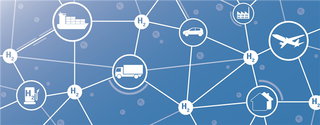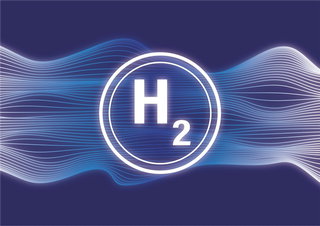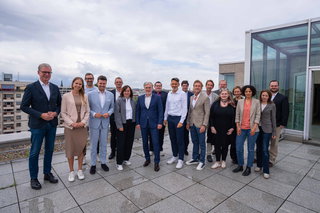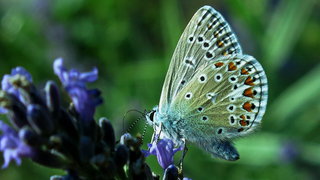| |
Hier finden Sie laufend aktuelle Nachrichten aus dem Themenbereich Ökologie.

|
| |
Aktuelle News |
 |
| |
 RSS-Feed einrichten RSS-Feed einrichten
Keine Meldung mehr verpassen
17.07.2025
Kein Schutz für Tierquäler ÖDP kritisiert Urteil gegen ARIWA-Aktivisten: "Wenn Boten bestraft werden, läuft gehörig was falsch."

15.07.2025
Der Videonewsletter der Möbelmacher 219 Unser Plattenspieler im BR; Inselbegabung; Senegal in Ubach; Zecken finden; Lauftreff in U-bach

Amcor und Mediacor bringen recyelbaren Nachfüllbeutel für Wasch- und Reinigungsmittel der Marke Nana AmPrima®-Nachfüllbeutel senkt Plastikverbrauch und CO2-Fußabdruck für die Verpackung von 2-Liter Produkten erheblich

14.07.2025
Schwalmtal überzeugt mit Repowering, Beteiligung und Klima-App Die Agentur für Erneuerbare Energien e. V. (AEE) zeichnet im Juli die Gemeinde Schwalmtal als Energie-Kommune des Monats aus.
Berlin, bist Du bereit für das sauberste Event des Sommers? Am 19. Juli: "CleanUp & Dance" mit Detlef Soost, Anna Hiltrop und SpreeCleanUp

Erhöhte PFAS- und Pestizidwerte im Rhein Immer neue Giftfrachten der Chemie-Industrie
Politische Leitplanken für eine Erweiterte Herstellerverantwortung im Textilsektor Neues Policy Briefing empfiehlt zentrale Reformansätze für ein zukunftsfähiges EPR-System in Deutschland
Baustopp vor Borkum nach Sieg vor Gericht Deutsche Umwelthilfe schützt im Eilverfahren einzigartiges Steinriff vor Kabeltrasse für neue Gasbohrungen
11.07.2025
Weltbevölkerungstag 2025: Datenstopp setzt nachhaltige Entwicklung aufs Spiel Kürzungen von US-Entwicklungsgeldern gefährden das Wissen über die globale Bevölkerung und Fortschritte in der Gesundheit weltweit
Union und SPD wollen zurück in alte Zeiten AbL zu den Ergebnissen der Sonder-AMK
"Recycling-Taschentücher und -Toilettenpapier sparen Wasser, Bäume und Energie" Klimaschutzministerin Katrin Eder besucht den Mainzer Standort des Unternehmens WEPA auf ihrer Sommertour.
"Ein weiterer Baustein beim Wiederaufbau des Ahrtals ist erfolgreich abgeschlossen" Erfolgreiche Verhandlungen zum neuen vollelektrischen Betriebskonzept auf der Ahrtalbahn
60 Jahre Delfinarium Duisburg: Kein Grund zum Feiern Jubiläum überschattet von hohen Sterblichkeitsraten und gescheiterter Zucht
10.07.2025
Kraftwerksstrategie muss Motor der grünen Wasserstoffwirtschaft werden Ein Bündnis aus Unternehmen und Umweltverbänden fordert von Bundeswirtschaftsministerin Reiche verbindlichen Fahrplan zur Emissionsreduktion bei der Ausschreibung von Kraftwerken

Deutsche Umwelthilfe zu neuem EU-Gesetz für Wasserstoff "Greenwashing zugunsten klimaschädlicher Erdgasproduzenten"

Rückkehr zur Gasheizung? Umweltinstitut kritisiert Heizungsverband
Den Wert des Tourismus für Einheimische und Reisende sicherstellen Overtourism-Roundtable von BTW und DRV setzt Signal: Die Reisewirtschaft ist Partner der Destinationen - Gemeinsam daran arbeiten, Reiseströme zu organisieren

Zukunftsfähige Landwirtschaft nicht wegschieben! Wir haben es satt!"- Bündnis fordert beim Treffen deutscher Agrarminister*innen: Umwelt- und Tierschutz für Bäuerinnen und Bauern wirtschaftlich machen!
Wilde Wiesen bieten vielfältigen Lebensraum für Schmetterlinge Bürgerinnen und Bürger können helfen, ihr Vorkommen zu erforschen

"Autos als mobile Stromspeicher können helfen, die Energie- und Verkehrswende voranzubringen" Potential von bi-direktionalen Wallboxen, an denen E-Autos nicht nur betankt werden, sondern auch Strom ins Netz abgeben können
|
|
|









